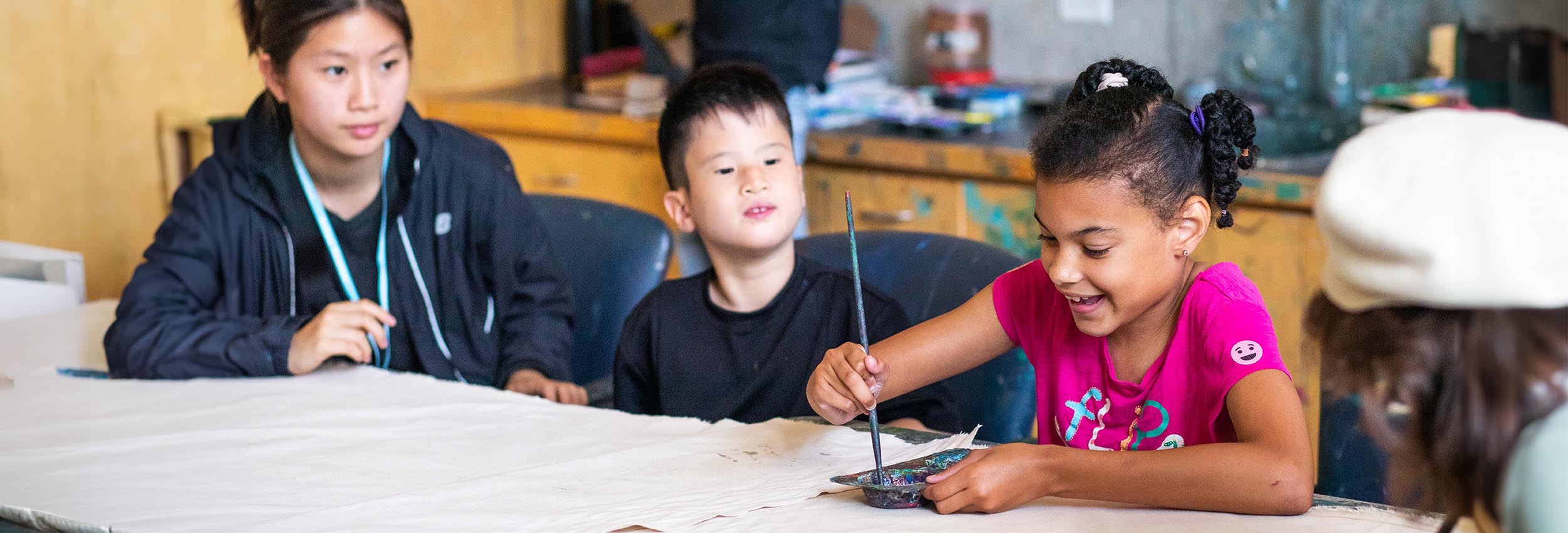
Advancing health equity
This year, Holland Bloorview took bold steps in advancing health equity and fostering an inclusive, diverse, equitable, accessible and anti-racist environment. We launched three major sociodemographic data (SDD) collection initiatives— for staff, job applicants and clients and families.
Collecting and analyzing this data is an essential step to better understand and support the unique needs of clients and families we serve and to foster a diverse, inclusive workforce that truly reflects the communities we serve. This data will help us design targeted interventions to improve care, promote equity and reduce disparities in safety event occurrences and transitions to adult care.
- Joanne Maxwell, vice president, experience, transformation and social accountability
Understanding the unique needs of those we serve
In 2024, we implemented We ask because we care to collect sociodemographic data from clients and families. Additionally, we advanced our social needs screening tool during appointments to identify unique social needs of clients and their families, such as food, housing, health-care costs and health literacy.
The results of these surveys demonstrate that we serve a disproportionately high number of marginalized and vulnerable clients and families. These insights underscore the complex needs of our clients and families, guiding us to create more inclusive, equitable and responsive care systems.
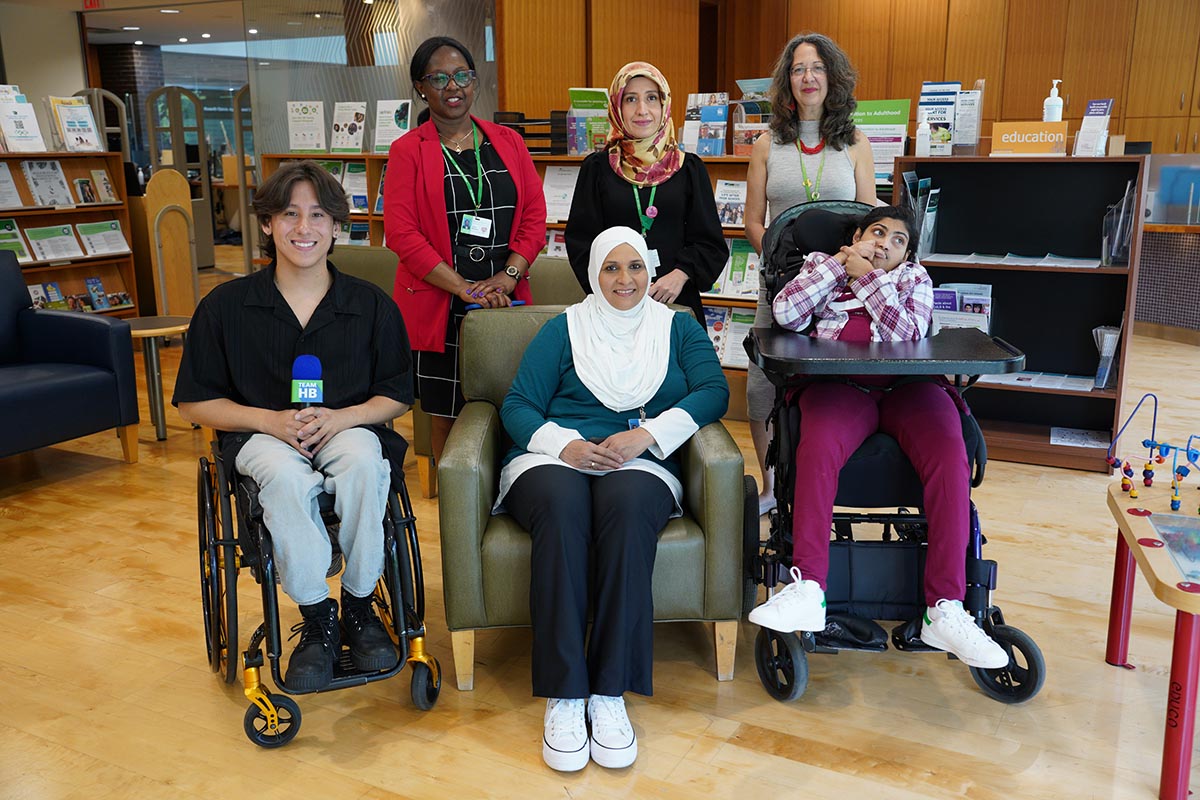
of families experience material deprivation e.g. unstable housing, food insecurity.
In September 2024, we launched an online Family Navigation Hub designed to help families access vital information and services related to social needs. Led by Master of Social Work students from the University of Toronto, the hub connects families to helpful supports in areas such as housing, food insecurity and legal information. The hub is also complemented by CommunityCONNECT, monthly virtual sessions dedicated to connecting families with the community resources they need.
This year, Employment Pathways, a program designed to support youth with disabilities build the skills and experiences required to connect to the world of work, have incorporated insights from sociodemographic data into their programing. By understanding the sociodemographic profile of the clients we serve, the team identified key priorities to enhance access, equity and employment outcomes – such as connecting with local and provincial partners to better reach diverse, newcomer and underserved communities across the Greater Toronto Area.
Among clients accessing our employment pathways program:
- Laura Bowman, project manager, research and evaluation, employment pathways
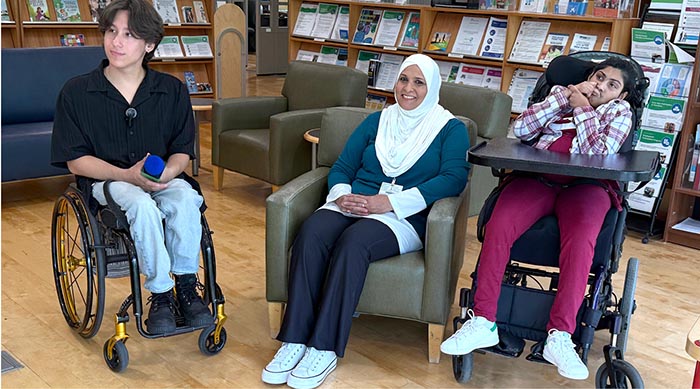
Understanding the sociodemographic profiles of our clients and their care teams is key to creating a diverse, inclusive environment that reflects and supports the communities we serve. Learn how nurse practitioner Vera Nenadovic uses this data to enhance health-care experiences and equity for clients, while spiritual care provider Ruveyda Durmus draws on staff data to support the hospital’s diverse cultural and spiritual needs.
Building an inclusive workplace
To build a more inclusive, equitable workplace, we began collecting sociodemographic data from job applicants in February 2024, focusing on groups that have historically faced and continue to face employment barriers. Shortly after, in June 2024, we launched a comprehensive sociodemographic data collection survey for all employees.
With a 53 per cent response rate, we’re now able to use this data to tailor our initiatives to strengthen inclusion, diversity, equity, accessibility and anti-racism and foster a culture of belonging. By comparing our data to local and national census data, we are able to build a team that represents the communities we serve.
In 2024-2025, with support from our Inclusion, Diversity, Equity, Accessibility and Anti-Racism (IDEAA) office, two new employee resource groups (ERGs) were created: the Black Employee Resource Group (BERG) and the Disability Employee Resource Group (Disability ERG). These groups complement our existing ERGs – the Jewish Employee Resource Group and the 2SLGBTQ+ Employee Resource Group. ERGs provide safe, supportive spaces for connection and peer support.
Sociodemographic data also helps Holland Bloorview create a more inclusive environment for diverse and marginalized staff. In December 2024, we installed our first piece of accessible gym equipment – an adaptive plinth table – to create a safer, more ergonomic space that supports colleagues with disabilities.
In August 2024, we launched Faces of Transformation – a storytelling initiative that highlights the diverse individuals who make up our team. Designed to nurture connection, belonging and purpose, this series celebrates staff successes, amplifies diverse voices and spotlights both personal and professional milestones.
These data-driven efforts are building a culture that celebrates diversity and drives change.
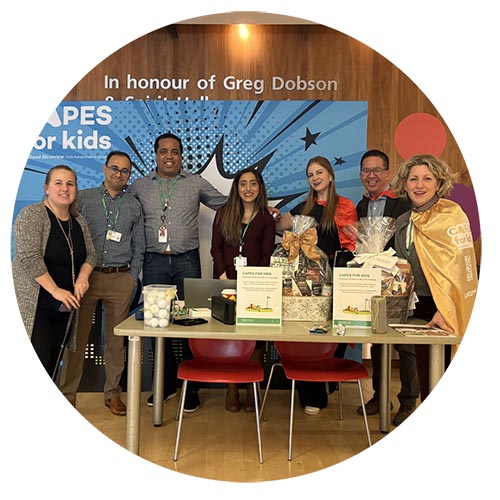

Holland Bloorview employs a greater proportion of staff who identify as Jewish (6.7%), Muslim (6.1%), Hindu (5.2%) or Buddhist (2.7%) compared to the Canadian population.
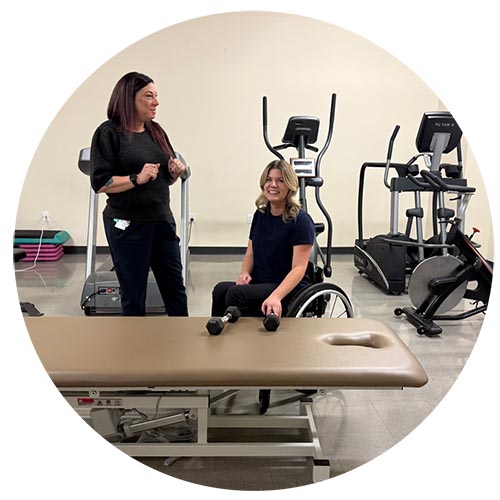
Holland Bloorview employs a greater proportion of staff who identify as Jewish (7%), Muslim (6%), Hindu (5%) or Buddhist (3%) compared to the Canadian population.
Working towards Truth and Reconciliation
As part of Holland Bloorview’s commitment to actioning recommendations set out in the Truth and Reconciliation Commission of Canada’s report, we are committed to providing holistic and culturally safe care for clients and families. To deepen staff members’ learning, Holland Bloorview’s IDEAA team created several resources this year including a land acknowledgment resource guide specific to the Canadian health-care context and incorporating considerations of Indigenous anti-racism and health inequities in its annual anti-racism education series. The hospital also introduced a new smudging policy to support the cultural practice of smudging for Indigenous employees, clients and families.
While we’ve made meaningful progress, we know this is just the beginning. Our commitment to truth and reconciliation is ongoing, rooted in transparency, accountability and continuous learning.

